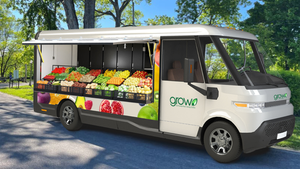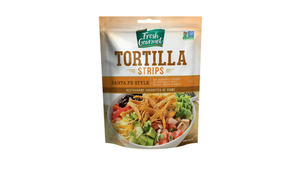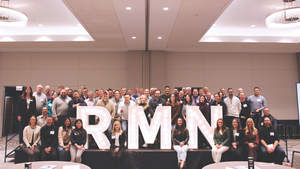Sunflower Launches CSA at Own Farm
Sunflower Farmers Market here became the first grocery chain in the U.S. to own and operate a commercial-scale farm about a year and a half ago. Now that the farm has had time to cultivate, Sunflower recently began using it to implement a weekly community supported agriculture program called Veggie Box Subscriptions. And, company founder Mike Gilliland is already planning the next steps toward
July 26, 2010
AMY SUNG
PHOENIX — Sunflower Farmers Market here became the first grocery chain in the U.S. to own and operate a commercial-scale farm about a year and a half ago. Now that the farm has had time to cultivate, Sunflower recently began using it to implement a weekly community supported agriculture program called Veggie Box Subscriptions. And, company founder Mike Gilliland is already planning the next steps toward his goal of making the working farm a learning center that visibly demonstrates Sunflower's passion for food.
The new Veggie Box Subscriptions CSA program will run from June 19-Nov. 20 and initially, there will be 100 memberships available to customers in the Boulder, Colo., area. Each week, these subscribers can pick up a half-bushel box filled with seasonal organic vegetables and herbs grown on the company's Sunflower Farm in Longmont, Colo. The retailer said it guarantees these vegetables and herbs will be picked within 24 hours of the time subscribers pick them up.
Gilliland said he thought that offering a CSA program was a natural fit.
“The majority of our produce, we sell in our stores, but we thought the CSA program was a nice tie-in because a lot of the impetus behind doing the farm was to educate folks and get people out to the farm who are interested,” Gilliland told SN.
For $700, Veggie Box subscribers can purchase a whole share in the CSA operation. In return, they receive a half bushel of produce per week for 23 weeks. Members can also subscribe to a half share, or one-quarter bushel for 21 weeks, and pay $325. Subscribers can pick up their weekly deliveries at Sunflower's Arapahoe Avenue store in Boulder, its North 63rd Street store in Longmont, and at Café of Life, also in Longmont.
Currently, a couple dozen people have subscribed for this season, Gilliland said.
“It's not terribly ambitious, but we're kind of starting out slow while we're working out the kinks,” he said of the CSA's first season, adding that more than 90% of the produce harvested from the farm is still sold in Sunflower stores.
The 14-acre farm continues growing, however. A greenhouse is in the works. Chickens for organic egg production are on their way to the farm within the next month or so. Fifty fruit trees have been planted, and the farm is tending to eight beehives. Gilliland is hoping that honey production will exceed last year's. Most of the honey and eggs will be offered in the CSA boxes further down the road, Gilliland said.
Sunflower is planning farm tours for interested customers, in addition to hands-on classes on organic issues and growing techniques at the farm, and appearances from special guest speakers. Gilliland hopes to offer tours toward the end of the growing season this year, he said.
“It was part of the plan all along to make the farm kind of a demonstration farm or a show place and a real learning center kind of thing,” he said.
“Eventually we'd like to have a petting zoo and a regular kind of outings. We're going to do a Harvest Festival out there on Sept. 25 … anybody who wants to come is invited. And we'll have tours, kids' stuff and things like that. We think there is some benefit to the store as well as to the farm to have that kind of tie-in with folks.”
Gilliland, who also founded Wild Oats natural-food stores with his wife, Libby Cook, in the 1980s, and served on the board of the Organic Trade Association, said that farming has always been a personal interest of his, and that he believes that the tie-in with Sunflower Farmers Market benefits both the stores and the farm.
“I have a day job at the store, so I don't have a lot of time to work on the farm but we've got a good team of folks out there that are really passionate about the whole organic industry,” Gilliland said.
“I've been doing some version of that for that past 25 years and I think everybody gets a kick out of the tie-in here. Even people who work at the stores and haven't even been to the farm yet find it interesting that we're kind of putting our money where our mouth is, getting our hands dirty and getting more deeply involved instead of just buying the stuff and reselling it.”
You May Also Like




